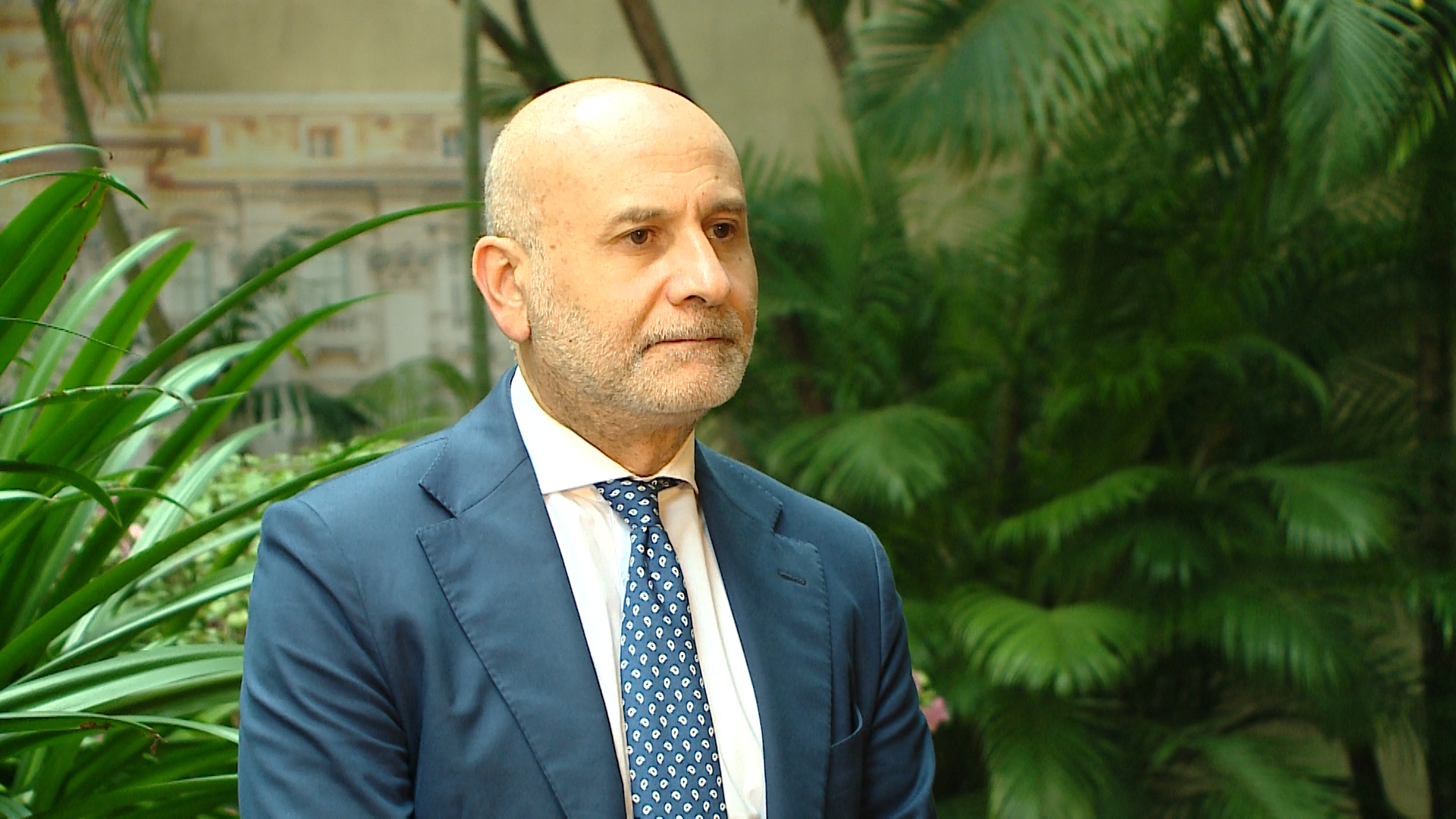PM Pham Minh Chinh's presence at COP 26 much welcomed, Ambassador says
VGP - The presence of Prime Minister Pham Minh Chinh at the 26th UN Climate Change Conference of the Parties (COP26) is much welcomed. It shows that the leadership of the country is fully aware of the importance of this appointment, Italian Ambassador to Viet Nam Antonio Alessandro told VGP at a recent interview.
 |
|
Italian Ambassador to Viet Nam Antonio Alessandro - Photo: VGP/Thuy Dung |
The second message is that countries participating in the COP26 have to honor their climate pledges and, in some cases, they have to stand ready to make bolder ones.
The third message is about financing. Developed nations must provide the US$100 billion needed to help energy transition in low and middle income countries.
Italy wishes to send the message that the voices and the proposals of the global youth must be heard. This was the result of the Youth4Climate conference held in Milan a few weeks ago, to which two young climate leaders from Viet Nam also actively participated.
“The decisions taken, or not taken, the COP26 will shape our future. It is extremely important that countries are represented at the highest possible level. We hope that the example of Viet Nam would be followed by others”, said Antonio Alessandro.
He also trusted that the presence of the Prime Minister will bring new commitments from Viet Nam such as pledging a date for the net-zero emissions, like many countries have done for 2050, or signing up to the statements that will be side-launched at the COP26 on forestry, methane, adaptation and others.
Italy willing to share best practices, knowledge on climate change adaption measures with Viet Nam
Regarding Viet Nam’s Nationally Determined Contributions (NDCs) presented last year, which raised its emission reduction target to 9 percent by 2030, the Ambassador said that the NDCs are an important step forward because they increase the targets and are based on a broader analysis of all the economic sectors.
Energy transition from coal to renewables plays a major role, in line with the Politburo's Resolution 55-NQ/TW on the Orientation of the Viet Nam's National Energy Development Strategy to 2030 and outlook to 2045. Ideally, coal should be abandoned in the medium term, said Antonio Alessandro, expressing his hope that the new Power Development Plan VIII could put this goal into practice.
Besides energy, other sectors are also relevant such as agriculture, farming and forestry, where green investments are needed, he said, adding that it is also important to promote green mobility and infrastructure policies.
“Finally, a comprehensive approach is needed, taking into account adaptation measures, nature-based solutions and biodiversity protection. Italy is willing to share its best practices and knowledge on all these aspects with Viet Nam”, stressed the Ambassador.
A delegation of the Vietnamese National Assembly, Foreign Relations Committee, also attended the Pre-COP26 Parliamentary Meeting in Rome, Italy and had working sessions with representatives of the Italian Parliament.
The Embassy of Italy worked intensively with the UN system in Viet Nam, the Ministry of Natural Resources and Environment (MONRE) and the Ho Chi Minh Communist Youth Union to facilitate the engagement of Vietnamese youngsters in climate change debate and action. These activities led to the participation of two delegates from Viet Nam to the Youth4Climate event in Milan.
Italy, as part of the EU, committed to become climate neutral by 2050 and to reduce greenhouse gas emissions of at least 55 percent by 2030. The EU and its Member States are also the world's biggest climate finance contributor, providing a third of the world's public climate finance.
The EU provides substantial support to Viet Nam and in particular to its energy transition, with a total grant of about €250 million.
Italy has also its own bilateral program to support Viet Nam in adaptation and mitigation measures, highlighted Antonio Alessandro.
Under the Memorandum of Understanding signed by Italy’s Ministry for Environment, Land and Sea and the MONRE in 2018, Italy will soon launch a program worth €3.4 million for remote sensing applications to combat climate change in Viet Nam. The Italian Development Cooperation Agency is also programming initiatives on climate change under the Debt-for-Development Swap Agreement.
By Thuy Dung
